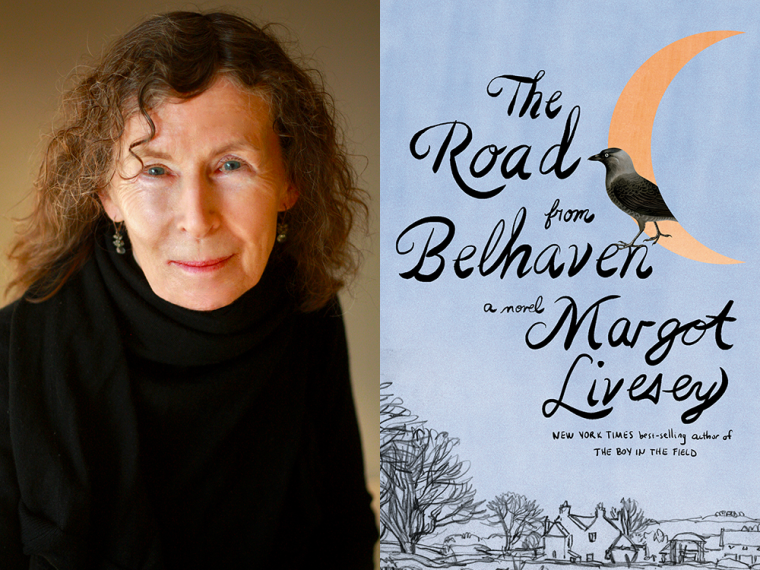This week’s installment of Ten Questions features Margot Livesey, whose new novel, The Road From Belhaven, is out today from Knopf. In this coming-of-age tale set in nineteenth-century Scotland, a clairvoyant girl named Lizzie lives on her grandparents’ farm, where she plies her family’s trade amid confusing visions of the future. As she attempts to influence events, Lizzie finds herself at a painful loss: cursed with the knowledge of what she either cannot change or cannot foresee. Disillusioned with rural life and the strictures of traditional femininity, Lizzie follows a charismatic young man to the city, where she finds herself overwhelmed by love and ultimately unable to escape the call of motherhood and her family’s homestead. In the Washington Post, Laurie Hertzel praises The Road From Belhaven: “Livesey’s piercing and eloquent novel manages to convey the wonderful mysteries that life offers along the way.” Margot Livesey is the author of a story collection, an essay collection, and ten novels, including The Boy in the Field (Harper Perennial, 2021) and Eva Moves the Furniture (Picador, 2001). A recipient of honors from the National Endowment for the Arts, the John Simon Guggenheim Memorial Foundation, and the Radcliffe Institute for Advanced Study at Harvard University, she is on the faculty of the Iowa Writers’ Workshop.

Margot Livesey, author of The Road From Belhaven. (Credit: Michael Lionstar)
1. How long did it take you to write The Road From Belhaven?
I began the novel in March 2020, when it became clear that I would not be able to go back to Scotland for many months. I wrote the last words in 2023.
2. What was the most challenging thing about writing the book?
I wanted to write a novel that was set in the 1880s but that wasn’t a “historical novel”; it just happens to be set in the past. Penelope Fitzgerald’s The Beginning of Spring was very inspiring.
3. Where, when, and how often do you write?
I have a room upstairs in our house in Cambridge, Massachusetts. It overlooks the neighbours’ garden, and I try to be at my desk first thing every morning. The computer I write on is never allowed to go online.
4. What are you reading right now?
Katherine Min’s posthumous second novel, The Fetishist, and Martyr!, Kaveh Akbar’s first novel.
5. Which author or authors have been influential for you, in your writing of this book in particular or as a writer in general?
Rereading Thomas Hardy’s work, especially Tess of the D’Urbervilles: A Pure Woman, was very helpful. Hardy is so persistently interested in mistakes as a determining force in the lives of his characters. Lewis Grassic Gibbon’s Sunset Song, which is set on a farm in the northeast of Scotland, was very influential.
6. Would you recommend writers pursue an MFA?
I have the good fortune to teach at the Iowa Writers’ Workshop where my students learn in six months what it took me six years to learn, writing between shifts as a waitress. But I would never say that pursuing an MFA is the only road to becoming a writer.
7. What is one thing that your agent or editor told you during the process of publishing this book that stuck with you?
My editor, the fabulous Jennifer Barth, told me to write a book only I could write.
8. What is one thing that surprised you during the writing of The Road From Belhaven?
I changed my mind about the meaning of a crucial word. I can’t explain without giving away the plot.
9. What forms of work, other than writing, did you have to do to complete this book?
I had to go to the gym most days, and I had to do research into farm life in nineteenth-century Scotland. I also did research, if that’s the word, into the supernatural.
10. What’s the best piece of writing advice you’ve ever received?
Tolerate your own mediocrity. Believe in the optimism of revision.







